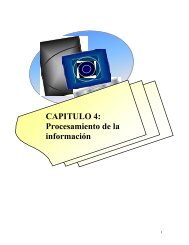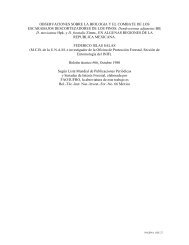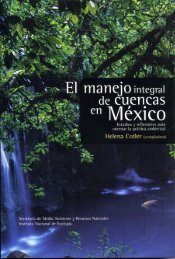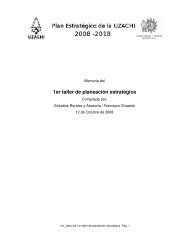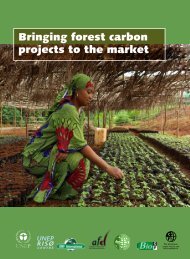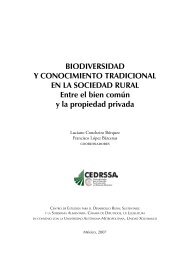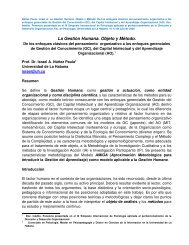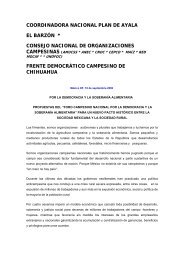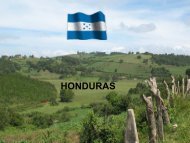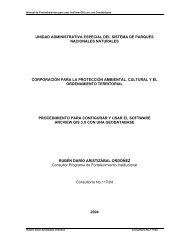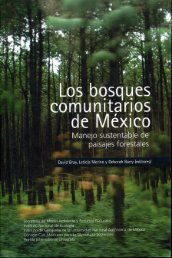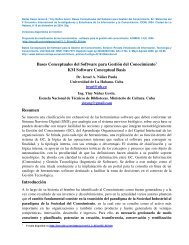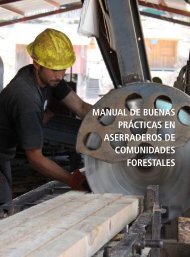STATE OF THE WORLD's INDIGENOUs PEOpLEs - CINU
STATE OF THE WORLD's INDIGENOUs PEOpLEs - CINU
STATE OF THE WORLD's INDIGENOUs PEOpLEs - CINU
- No tags were found...
You also want an ePaper? Increase the reach of your titles
YUMPU automatically turns print PDFs into web optimized ePapers that Google loves.
EMBARGOED UNTIL 14 January 2010<strong>STATE</strong> <strong>OF</strong> <strong>THE</strong> WORLD’S INDIGENOUS PEOPLESNot for distributionb) peoples in independent countries who are regarded as indigenous on account of their descent from thepopulations which inhabited the country, or a geographical region to which the country belongs, at thetime of conquest or colonization or the establishment of present state boundaries and who irrespectiveof their legal status, retain some or all of their own social, economic, cultural and political institutions.The concept of indigenous peoples emerged from the colonial experience, whereby the aboriginal peoples of agiven land were marginalized after being invaded by colonial powers, whose peoples are now dominant over theearlier occupants. These earlier definitions of indigenousness make sense when looking at the Americas, Russia,the Arctic and many parts of the Pacific. However, this definition makes less sense in most parts of Asia andAfrica, where the colonial powers did not displace whole populations of peoples and replace them with settlersof European descent. Domination and displacement of peoples have, of course, not been exclusively practised bywhite settlers and colonialists; in many parts of Africa and Asia, dominant groups have suppressed marginalizedgroups and it is in response to this experience that the indigenous movement in these regions has reacted.It is sometimes argued that all Africans are indigenous to Africa and that by separating Africans into indigenousand non-indigenous groups, separate classes of citizens are being created with different rights. The sameargument is made in many parts of Asia or, alternatively, that there can be no indigenous peoples within a givencountry since there has been no large-scale Western settler colonialism and therefore there can be no distinctionbetween the original inhabitants and newcomers. It is certainly true that Africans are indigenous to Africa andAsians are indigenous to Asia, in the context of European colonization. Nevertheless, indigenous identity is notexclusively determined by European colonization.The Report of the Working Group of Experts on Indigenous Populations/Communities of the African Commissionon Human and Peoples’ Rights therefore emphasizes that the concept of indigenous must be understood in awider context than only the colonial experience.The focus should be on more recent approaches focusing on self-definition as indigenousand distinctly different from other groups within a state; on a special attachment to and useof their traditional land whereby ancestral land and territory has a fundamental importancefor their collective physical and cultural survival as peoples; on an experience of subjugation,marginalization, dispossession, exclusion or discrimination because these peoples havedifferent cultures, ways of life or modes of production than the national hegemonic anddominant model. 9In the sixty-year historical development of international law within the United Nations system, it is not uncommonthat various terms have not been formally defined, the most vivid examples being the notions of “peoples” and“minorities”. Yet the United Nations has recognized the right of peoples to self-determination and has adoptedthe Declaration on the Rights of Persons Belonging to National or Ethnic, Religious and Linguistic Minorities.The lack of formal definition of “peoples” or “minorities” has not been crucial to the Organization’s successes orfailures in those domains nor to the promotion, protection or monitoring of the rights accorded to these groups.Nor have other terms, such as “the family” or “terrorism” been defined, and yet the United Nations and MemberStates devote considerable action and efforts to these areas.In conclusion, in the case of the concept of “indigenous peoples”, the prevailing view today is that no formaluniversal definition of the term is necessary, given that a single definition will inevitably be either over- or under-9Report of the African Commission’s Working Group of Experts on Indigenous Populations/communities.6 | INTRODUCTION



